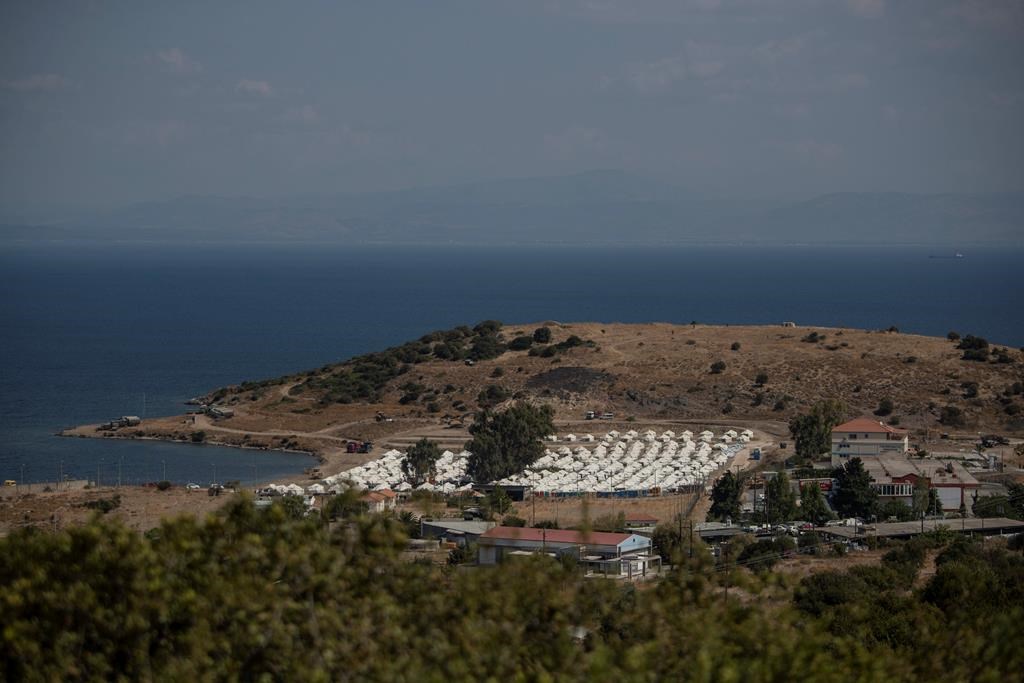
Just 800 of Greek island's 12,500 homeless migrants rehoused
by The Associated PressATHENS, Greece — Just over 6% of the 12,500 people left homeless last week by the fire that destroyed Greece’s biggest camp for refugees and migrants have been rehoused in a new temporary facility under construction on the island of Lesbos, authorities said Monday.
By Monday afternoon, about 800 people had entered the new tent city, hastily set up by the sea a few kilometres from the gutted Moria camp, migration ministry officials said.
Thousands remained camped out for a sixth day along a road leading from Moria to the island capital of Mytilene, with police blocking the way into town to prevent asylum-seekers trying to board ferries for the Greek mainland instead of entering the new camp.
Authorities say the blazes last Tuesday and Wednesday in Moria, where thousands of people arrive every year after crossing illegally from nearby Turkey, were started by camp residents angry at quarantine orders imposed after 35 people in the facility tested positive for COVID-19.
Migration Minister Notis Mitarachi said there’s space for about 5,000 people so far in the new camp, on a former military firing range at Kara Tepe near Mytilene. He also said everyone left homeless by the Moria fire will be able to relocate to Kara Tepe within the next few days.
Officials said the gap between available spaces and residents in the new camp is largely due to the unwillingness of many asylum-seekers to settle in. Many had hoped that with Moria destroyed they would be allowed to head for the Greek mainland, or even other European Union countries.
Several hundred women and children held a protest march along the Moria-to-Mytilene road Monday, chanting: “No camp, freedom.”
But government officials said the only way for former Moria camp residents to leave Lesbos would be to move to the new facility and successfully apply there for asylum.
“Moving to the new camp is not optional, it’s obligatory,” Mitarachi said in an interview with Parapolitika Radio.
Under EU rules, people reaching Greece’s eastern Aegean islands from Turkey must stay in camps at their points of arrival pending examination of their asylum bids. This led to overcrowding and squalid living conditions for camp residents that were repeatedly criticised by human rights organizations. It also triggered resentment among Lesbos’ Greek population.
Asylum-seekers entering Kara Tepe are tested for COVID-19 as part of the registration process, and 15 infected people have been recorded so far. All were moved to isolation facilities.
Greece’s minister responsible for public order, Michalis Chryssohoidis, said Monday he hoped a continued reduction in migration flows from nearby Turkey and a speedy processing of asylum applications should mean the last of the refugees and migrants currently on Lesbos would have left by spring.
Greek authorities plan to build a new facility for future arrivals that will replace Moria.
The Associated Press